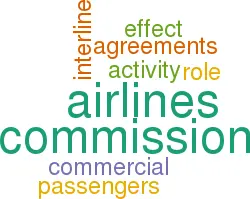Tilting at windmills
December 2000


The European Commission (both the transport and the competition directorates) is setting itself up as the guardian of the interests of the airline passenger. This is a laudable role, and it is always useful to question the self–interest of airlines. However, some of the recent proposals from Brussels seem to betray a lack of understanding about the commercial realities of the airline industry. More importantly, these proposals, if translated into legislation, will likely have the opposite effect to that intended. To take the first example, the Commission is concerned that when passengers buy a ticket they get the service that they have paid for. This is pretty reasonable, but the Commission seems to be suggesting that the practice of over–booking should be outlawed or heavily penalised.
The effect would be to undermine airlines' yield management systems, force airlines to issue more restrictive tickets, impose more penalties on no–shows, and ultimately cause more inconvenience to the passenger. In a deregulated environment, the role of the regulatory body should not be to dictate ticketing and pricing policy.
Secondly, in its draft slots directive the Commission is suggesting that grandfathered slots cannot be re–timed unless the air carrier proposes to use "better", i.e. larger and/or more modern, aircraft.
Here the Commission’s aim is again understandable — to reduce the amount of noise and emissions generated in carrying a fixed number of passengers. But again the Commission is in effect trying to interfere in the commercial decision–making of a carrier, ignoring the reality that aircraft choice depends on factors such as changes in demand, the need to feed or connect with alliance partners, or increase schedules to meet competitive threats.
The Commission has a role in making airlines compete with each other, but it cannot specify how they should compete, beyond questions of legality, collusion and dominance.
The third example actually relates to a perceived cartel–type activity. The Commission is thinking of banning interline agreements on the grounds that this is a price–fixing activity that currently enjoys exemption from competition rules. In reality, the interlining system allows passengers to buy a ticket on two connecting airlines usually for less than the price of fares on the two segments. It also adds flexibility to travellers' schedules as many airlines will accept each others' tickets.
Smaller airlines generally benefit from interline agreements, as it gives them the opportunity of feeding larger carriers' intercontinental networks. Ironically, in the early 90s new entrants like Air Europe went to court to establish small carriers' rights to participate in interline agreements.
One unexpected consequence of the Commission’s activity has been to revitalise IATA’s aeropolitical function, allowing that august body to act as the voice of commercial reason.